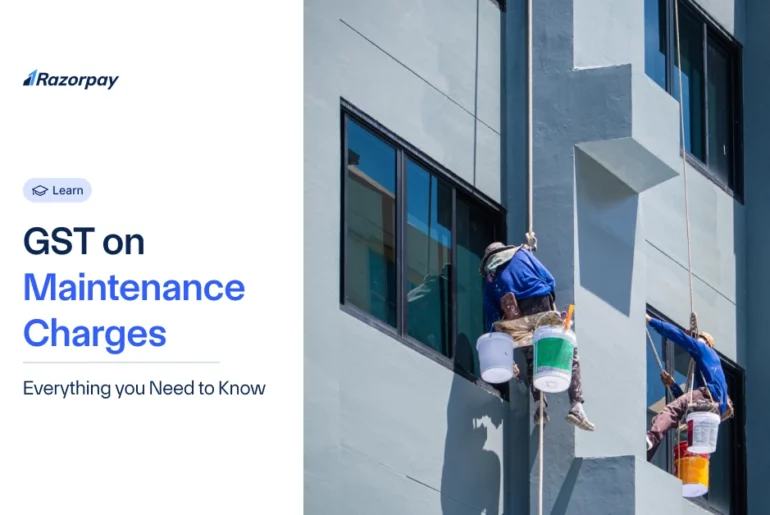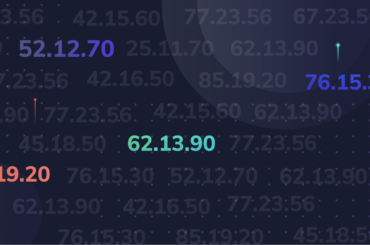If you’re a flat owner in India, you may have noticed GST on maintenance charges levied by your housing society or the Resident Welfare Association (RWA). As a tax that affects millions of homeowners, it’s crucial to understand when and how GST applies to your monthly maintenance bills. In this article, we’ll delve into the intricacies of GST on society maintenance and how it affects you as a homeowner.
Table of Contents
What is GST on Maintenance Charges?
GST, or Goods and Services Tax, is a comprehensive indirect tax levied on the supply of goods and services in India. When it comes to maintenance charges, GST is applicable to the fees collected by housing societies or RWAs for the upkeep and management of common areas and facilities.
Related Read: A Guide to GST on Flat Purchases
These charges typically cover expenses such as:
-
Security services
-
Cleaning and maintenance of common spaces
-
Lift maintenance
-
Generator backup
-
Other shared amenities
Prior to the implementation of GST, service tax was levied on maintenance charges at a rate of 15%. However, with the introduction of GST, the tax rate on maintenance charges has increased to 18%.
When Does GST Apply to Maintenance Charges?
The applicability of GST on apartment maintenance depends on the amount of maintenance charges collected per member per month. Here are the key points to remember:
-
If the monthly maintenance charge per member is less than ₹7,500, no GST is applicable.
-
If the monthly maintenance charge per member exceeds ₹7,500, GST at a rate of 18% is levied on the entire amount.
However, there are certain exemptions to this rule:
-
If the residential complex has less than 15 dwelling units, no GST is applicable regardless of the maintenance amount.
-
Pure labour services like security, cleaning, and housekeeping provided by the RWA are exempt from GST.
How is GST Calculated on Maintenance Fees?
To understand how GST on apartment maintenance is calculated, let’s consider an example:
Suppose a housing society collects Rs. 10,000 per month from each flat owner towards maintenance charges. In this case, GST would be applicable at a rate of 18% on the entire amount.
The calculation would be as follows:
|
Particulars |
Amount |
|---|---|
|
Monthly Maintenance Charges |
Rs. 10,000 |
|
GST Rate |
18% |
|
GST Amount |
Rs. 1,800 |
|
Total Maintenance Charges (including GST) |
Rs. 11,800 |
It’s worth noting that GST applies to the overall maintenance charges, including various categories such as common area maintenance, utility charges, and other applicable fees.
Can You Claim Input Tax Credit (ITC) on Maintenance Charges?
Input Tax Credit (ITC) is a mechanism under GST that allows businesses to reduce their tax liability by claiming credit for the taxes paid on inputs. In the context of maintenance charges, members who run businesses from their homes can claim ITC for the GST paid on maintenance fees.
However, to be eligible for claiming ITC, you must be registered under GST and use the property for business purposes. It’s advisable to consult a tax professional to understand the specific requirements and procedures for claiming ITC.
How GST Impacts Flat Owners and RWAs
GST on maintenance charges has had a significant impact on both flat owners and RWAs:
-
Flat owners in metro cities are likely to see an increase in their monthly maintenance bills due to the low threshold of ₹7,500. This additional expense can strain the budget of many households.
-
RWAs are responsible for collecting GST on maintenance charges and remitting it to the government. They must also issue tax invoices to flat owners for transparency and record-keeping.
-
RWAs with an annual turnover exceeding ₹20 lakhs must register under GST. Failure to comply with GST regulations can result in penalties and legal consequences.
Conclusion
Understanding GST on maintenance charges is essential for every flat owner in India. GST at 18% applies to maintenance charges if monthly contributions exceed ₹7,500 per member. RWAs must register under GST if their annual turnover crosses ₹20 lakhs. Being aware of GST rules empowers flat owners to protect their rights and maintain financial clarity.
Related Read: Solar Panel GST Rates in India
Frequently Asked Questions:
1. Who is responsible for paying GST on maintenance charges?
The flat owners are ultimately responsible for paying GST on maintenance charges. The RWA collects the tax from the residents and remits it to the government.
2. How does GST affect the monthly maintenance bill?
If your monthly maintenance charges exceed ₹7,500 per member, an additional 18% GST will be levied on the entire amount. This can significantly increase your monthly maintenance bill.
3. How does GST on maintenance charges affect billing for flats in a commercial complex?
GST on maintenance charges is applicable for both residential and commercial properties. However, owners of commercial units may be able to claim ITC on the GST paid, subject to certain conditions.
4. Is GST applicable to maintenance charges in a gated community?
Yes, GST on housing society maintenance is applicable in gated communities if the monthly maintenance charge per member exceeds ₹7,500 or if the annual turnover of the RWA crosses ₹20 lakhs.
5. Can tenants be charged GST on maintenance?
Yes, tenants can be charged GST on maintenance charge if the monthly maintenance fee exceeds ₹7,500. The landlord is responsible for collecting the GST and remitting it to the RWA.
6. Is there GST on parking fees in apartment complexes?
If the RWA charges a separate fee for parking, GST may be applicable on that amount if the conditions for GST on maintenance charges are met.
7. How can flat owners verify if GST is correctly charged?
Flat owners can request detailed invoices from the RWA, showing the breakup of maintenance charges and GST. They can also verify if the RWA is registered under GST by checking the GST portal or consulting with a tax professional.


